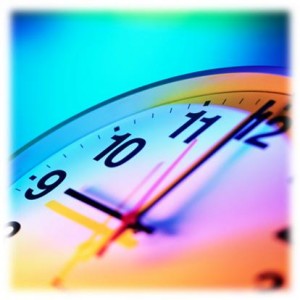 One of the most common mistakes I see people make is going too long without eating. There are a number of reasons why this is not a wise choice.
One of the most common mistakes I see people make is going too long without eating. There are a number of reasons why this is not a wise choice.
For people trying to control their weight, skipping meals or snacks can set them up to fail. Often I find that people will either skip breakfast or have a very light breakfast (quick piece of toast or fruit on the way out the door), they may or may not eat lunch, then they don’t eat dinner until after 6:00 PM. How hungry do you think they are by dinner time? Yup! They’re starved (and actually start grazing before dinner).
The obvious consequence of being overly hungry when we eat is that there is a tendency to eat too fast and too much. The lesser known consequence is that going too long without eating also affects out choice of foods. When we have prolonged periods without eating, our energy levels drop which signals our brain. 0ur subconscious brain demands a quick source of energy and a concentrated source of energy. Sugar is one of the quickest sources of energy, and fat has the most energy (Calories) per gram … so we begin to crave sugar and/or fat. This is why a Snickers bar is one of the most popular snacks at 3 in the afternoon (it’s high in both sugar & fat). Think about it, if you go to a restaurant moderately hungry, it is likely that a nice salad with some chicken on it will be satisfying. If you are starving when you get there, you are much more likely to order a bacon double cheese burger, fries and a malt. No?
I find that often times when people tell me they have a “sweet tooth” they are either going too long without eating or not eating enough when they do eat. If we don’t consume enough food during the day to fuel our bodies, we set ourselves up to fail later. Often people tell me they don’t eat much during the day because they are not hungry. Usually this is because this habit has been going on for so long that the body has learned to override hunger & fullness signals to a large extent (or at least delay them). When people begin to eat more frequently, they usually re-connect with their hunger signals…which is a good thing. These signals prompt us to stay well fueled during the day so we think and perform better, and are less likely to over-eat at night. By the way, research suggests that people who consume 60% or more of their Calories at dinner and beyond are at a higher risk of obesity, insulin resistance and type 2 diabetes.
Athletes who don’t eat much during the day are at a disadvantage too, even if they are not at high risk for obesity. When we are not eating to fuel our bodies, our energy comes from breaking down glycogen as a fuel source. Since glycogen is the form of carbohydrate stored in our bodies, and carbohydrate is the primary fuel for exercise, it is important for athletes to try to maximize glycogen stores. This is almost impossible to do if your body is having to consume glycogen for energy throughout the day because there is insufficient fuel being supplied from food.
So…the third nutrition challenge is to eat frequently throughout the day. I typically recommend that people not go more than 3-4 hours without a meal or a snack (though some people with high metabolisms find they need to eat more often). This can be in the form of several small meals (5-6) dispersed throughout the day, or can be 3 moderately sized meals and 2-3 snacks. As you are planning and choosing your meals and snacks keep in mind your goal to consume at least 7 servings of fruits and vegetables each day. Think about where in your day you plan to eat these. By doing so, you will gain the benefits of the nutrients contained in fruits and vegetables, and will be able to eat more often without packing your diet with calorie dense foods.
Nutrition Challenge #3: Set yourself up for success by eating at least every 3-4 hours
(and include plenty of fruits and veggies while staying well hydrated).

